VUKARONA – Accelerating change with emergency braking
Potential for conflict in the VUCA world in times of the coronavirus pandemic.
Introduction
Timo K. is sitting at his computer near Heidelberg in January 2020. He runs an insignificant online shop that is barely profitable. But Timo K. watches the news and places orders for tens of thousands of euros Respiratory maskswhich he pays for with the last of his money. He has to borrow some of it from family members. In a few days' time, his neighbours will be complaining because the truckloads of face masks that have arrived are disturbing the peace and quiet in the village. It is almost impossible for Timo K. to organise helpers at short notice. He is entering into the riskiest deal of his life. Not only financially, but also morally. Up until this moment, there was nothing to suggest that his online shop would even be worth mentioning in the local news. What happens next is in many ways similar to drug dealing, as he later describes in a Interview to the best. Criminal liability excluded. Within a few weeks, Timo K. will have made millions of euros in sales of face masks.
At the same time, the world looks and listens to Wuhana Chinese city with over a million inhabitants that was quarantined on 23 January 2020. Few of those who looked there and could see the same thing knew at that time that they were looking into their own future and not at a distant place in the world…and the infamous sack of rice fell in China!
On 25 March 2020, the Mayor of New York Bill de Blasio in front of the microphones and calls out to his citizens: „The world we knew is lost. Millions of people in the city will be infected…and we will lose some of them…“, and then turned to his fellow Americans: „We are your future “
The future is one of those things, it's usually already there, just in a different place.
VUKARONA – Where change is accelerated with full braking
VUKARONA is the world that shows that nothing simply happens somewhere else, but that everything also happens here. Just not immediately, now.
Where is VUKARONA?
In VUKARONA, everyone can see via the Internet what is happening there today and what will happen here tomorrow. Everyone can see, hear and read now and everywhere what has just been discovered, developed and invented – and can be ordered, introduced and utilised tomorrow. And even things, phenomena and events that are not ordered, wanted or desired will find their way everywhere in VUKARONA, faster than anywhere else. Or to put it another way: no one needs to harbour the idea that they are in control or that they can assume that others are. In the VUKA world, no one is in control alone, nobody knows everything or even how things work. Because not only the world is vuka, time seems to be too.
Capitalist business in VUKARONA?
And if some now think that we are now slowed down and trapped in a standstill as a result of the coronavirus and its pandemic effects (Photo collection in the NYT), so that we could finally find some peace and quiet, etc., he may have been mistaken. The Virus is not a brake, is not a stop, but a chicane that is approached at full speed and requires us all to get out of it as best we can and together.
This crisis, caused by a virus, is nowhere better imaginable than in a capitalist-organised, democratic and constitutional world: funds will be raised immediately, collected and made available by everyone, not just the authorities, to support people and societies. Yes, and we will only generate these funds together in the future (credit system!). Because we firmly believe that the future will be better than the present. For example, the US has around 2,000 billion $, Europe 750 billion € and Germany around 500 billion €. In addition, enormous investments are being made on the stock markets in order to develop and mass-produce drugs and thus make curative medicine possible. Anyone who despises this as greed for profit with the suffering of others is limiting their perspective on the diverse capitalist reality.
We can experience how not only the „Cold heart of capitalism“ (Plumpe) to ensure our survival in prosperity, but also our constitutional and democratic society acts in a highly social way and makes provisions – not only for the elderly and the pre-ill, but also for the smallest, small and large economic players. Even the In the face of this virus, the USA appears to be‘ quasi-socialist to mutate. Who would have dared to bet at Christmas 2019 that Donald Trump would introduce sick pay?
If that's not heart-warming vuka, what is?
- …that Mattress company Respiratory masks – exclusively for hospital staff and frontline pandemic workers –?
- …that Hoover company Ventilators – media-effective and thus capitalistically – manufactured?
- …that Chemical company Disinfectant manufactures?
In this crisis, we cannot imagine a market-based society without a regulating state,
But we don't want to leave the crisis to the state alone.
Hardly heart-warming, however, is the idea, which also belongs here, that the Old people die for the economy should. It comes from an old, privileged person with health insurance, who nevertheless cannot immediately be denied courage, determination and mental clarity. That is exactly what vuka is. This diversity that is not simply folded into simultaneity.
The economic race is not one, but resembles a colourful hustle and bustle that nevertheless brings progress in its impenetrability. Admittedly, not always and for everyone, but often for the vast majority. But in VUKARONA, this can only be recognised by those who historical and global is what anyone who appreciates the historic progress made in many parts of the world (1st video) and knows how to use it as an incentive for further tasks (2nd video) thinks.
VUKARONA is precisely this consequence of a global process of progress and improvement, which must first be recognised and taken into the inner spaces of acceptance – and then realised: There you go, it works! The direction is right…
Now VUKARONA!
For the moment, at any rate, global society is facing an enormous challenge: the coronavirus is travelling through the world's social networks – and showing it how vukaesque people and societies act and are interwoven with each other. This is not the time to take a fundamentally critical stance on side issues and finally convict old culprits, when many people are longing to finally be named as the guilty parties if they are not allowed to be identified themselves.
For the moment, it can be said that the world's states and societies are responding to the coronavirus in a coordinated, largely respectful, and in any case resolute manner, and that society's defences against a new type of enemy are activated…but…that sounds for our little journey through VUKARONA, once again far too safe, far too unambiguous, far too clear.
VUKARONA can hardly be explored with certainties; you need to be prepared to embark on the journey without a map.
Originally VUKA was the answer of the US Army War College The new military problems that arose with the end of communism at the beginning of the 1990s were explained to its leadership and strategy graduates in response to the changed political climate. The initial idea was that the demise of the USSR had also ended the global division into communist Eastern bloc states on the one hand and the liberal states of the West on the other. From now on, it was unclear where and who the enemy was – and so not only soldiers, but the day as a whole lacks structure.
From now on, the world was vuka. Volatile. Uncertain and insecure. Complex. Ambiguous and ambivalent.
With the 2019 the emerging and explosive spread of the new year at the turn of the year. Coronavirus SARS-CoV-2, that the Covid-19 disease (for corona virus disease 2019) in humans and contributes to the worldwide Coronavirus pandemic the descriptive concept of the VUCA world unfolds in a new form: Now it is visible to all that the world has grown together and is one, but in any case is not uniform, one-dimensional, unified, but only reveals all its complexity and opacity to the extent that we can directly perceive and cognitively penetrate its reality through digital media.
VUKA in times of the coronavirus
1. volatility – The fluctuation ranges of the world.
Volatility refers to the Fluctuation ranges and intervals of changes. The world, the economy and the weather, but also prices, the stock market and evil, whereby the good must not be forgotten and the regulatory aspects in the state, in the family and in the company also want to be mentioned – everything is volatile, comes along highly fluctuating and is hardly valid for life.
For most of us, life is not a long, smooth flow – and probably never has been. But today, for everyone, whether worker or activist, farmer or lorry driver, professor or professional footballer, office manager or opera singer, the Change is the constant of our postmodern age.
Everything is changeable, fragile, unstable, sometimes pleasingly flexible, but always questionable and dubious. Relationships have increased and with them the relativity of phenomena and encounters, mobility, sedentariness, things and virtual realities. Ground-breaking inventions and developments affect many more people on earth in a much shorter time, also in percentage terms.
The invention of the zero in India around 1500 years ago took time to be used by everyone, in Europe this only happened around 700 years later thanks to the mathematician Fibonaci. And the Dutch telescope, which allowed Galileo to see far and wide around 1600, barely found its way into the living spaces of his contemporaries. Even the railway, which changed the face of the world like no other invention before it, was only used by a fraction of people in the first few decades.
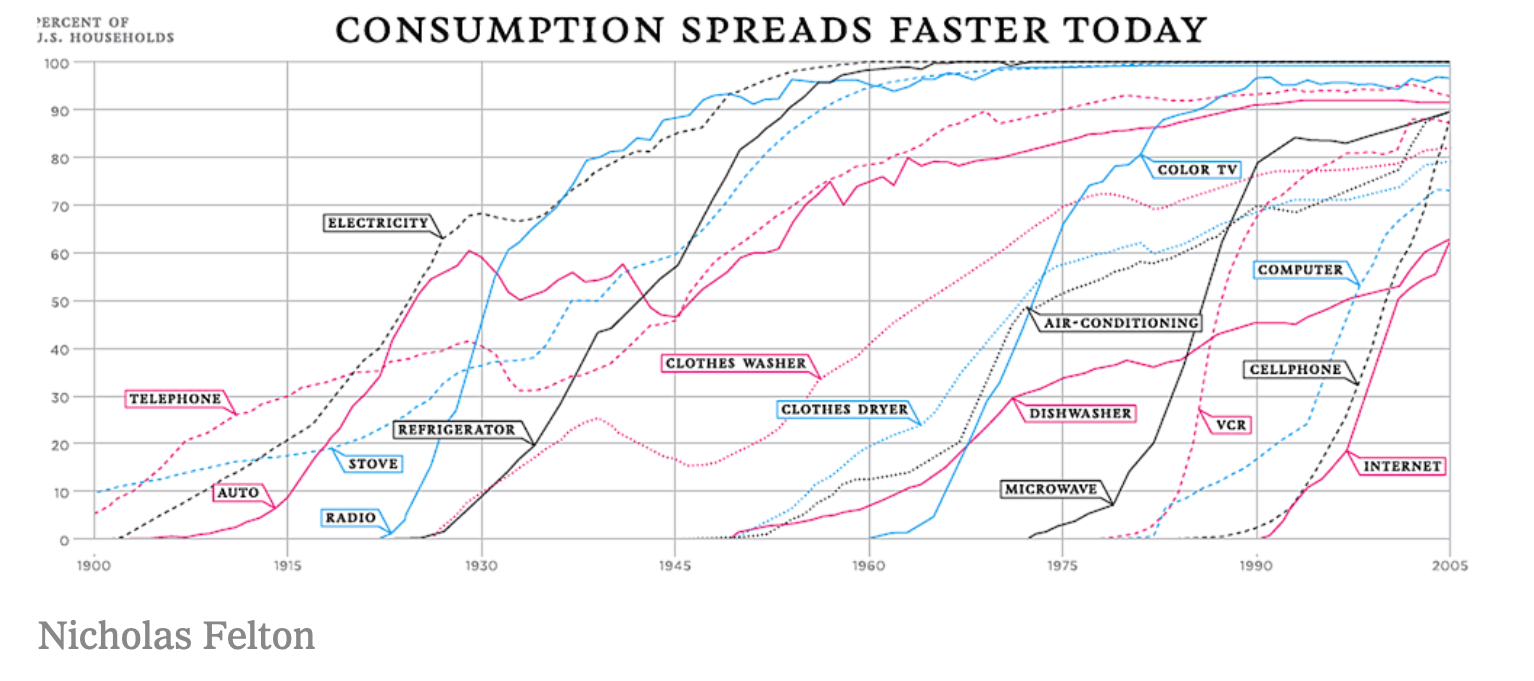
Another indicator for the change in individual and social life is the Number of contacts of data and people: Never before so much data and so many people were pouring in on people and forced them to react by feeling, thinking and acting. We simply cannot not react. For this reason alone, life at the beginning of the 21st century (7 billion people) is different from life at the beginning of the 20th century (2 billion people) or even the 19th century (1 billion people). The Italian philosopher Luciano Floridi Therefore, and in view of the advances in information and communication technologies, we also speak of the Age of the infosphere.
And now, in March 2020, this!
A serious pandemic, a virus is travelling through the entire world. There’s doubt about that too, of course. Just Vuka.
- New York Times – Virus Pathways in the VUKA World – great geographically-focused visualisation of the distribution routes!
- Covid Bar Chart – Dynamic bar chart of virus outbreaks in the world.
Shutdown in Germany and most of the world – halfway there. The other half will follow.
Social standstill. Hardly, rather the opposite.
Social distancing as an expression of interpersonal solidarity – no longer just when driving!
Biological care through grandchild withdrawal! Wow!
Economic standstill. Supply shock and demand shock at the same time.
In many ways, this resembles a war – and is exactly the opposite!
After all the growth-orientated, global developments of the past 20 years (Container cost transport revolution, Digital data transport revolution, Air travel transport revolution etc.) – a virus presses what many observers have identified as the pause button because the usual transport of people and things has been stopped immediately. But the exchange of data continues. The data flows all the more intensively. Because we are by no means antisocial.
Conflict potential of volatility phenomena
Volatility phenomena in the face of the coronavirus are diverse and can be found everywhere. Some potential conflicts are listed and briefly explained below.
2. uncertainty in the vastness of the world's knowledge
Uncertainty is not only expressed in the fact that we are unable to assess a certain scenario, but also in the fact that we do not think about a corresponding probability at all: "Taken together, Your Majesty, the failure to foresee the timing, magnitude and severity of the crisis [of 2008] and to avert it...was primarily a failure of the collective imagination of many intelligent and educated people...". That was the answer from 33 British Academy experts in July 2009 when they were asked by Queen Elizabeth II: "Why didn't anyone see the credit crunch coming?"
Nowadays, according to the idea of the VUCA world, nobody can provide comprehensive and reliable information on a specific question. This even applies to scientists and experts when it comes to questions about their specialism. Laypeople and other non-experts may harbour the idea that experts should be able to provide reliable information or give a clear answer to a question. But it's not that simple any more. Scientists may have accumulated expertise in their field, but this does not put them in a position to answer all questions with certainty. Clarity in the matter to declare. After all, science is the constructive exchange of different perspectives on knowledge according to certain rules. This means that scientific discussions and answers always involve weighing up and multidimensional insights that are currently valid but remain in the ongoing flow of knowledge. Scientific knowledge no longer stops the world (knowledge), but enables new insights and further progress. And it is the best tool we have to deal with complexity – and to come to terms with our increasing uncertainty about the flow and progress of things. Currently in the coronavirus crisis we can give the virologist Prof Drosten (FAZ+, Podcast) and find out what it means, to ask the right questions on the basis of scientific knowledge and find practicable answers. to find. This is a role model par excellence. Because it shows that scientific knowledge does not provide the ultimate answers
However, even in the sophisticated dispute between connoisseurs and experts, it cannot be ruled out that uncertainty is the consequence. Because, and this is the paradox, Knowledge leads to realisation, but not directly to feelings of security. Quite the opposite. Cognition and knowledge are rather subject to uncertainty. Anyone who pushes open the doors of knowledge knows about the unexplored spaces behind them. And it is not answers that bring knowledge, but questions.
What is unquestionably certain, however, is that the social fall height is high these days – even on the lower social rungs of the ladder. And this is why uncertainty and insecurity often lead to social conflict potentials that cannot be discussed away with scientific expertise and certainly not with scientific arguments. Rather, in conflicts of this kind Uncertainty Uncertainty with attention. Today, everyone makes decisions based on incomplete, uncertain and therefore insecure facts – and therefore everyone can be sure that they are exposed to such decisions made by others. More than ever, certainty and security are fragile conditions that make appropriate conflict management with a "redeeming objective" impossible. Especially in conflicts – it is important to manage ambiguity and contradiction, and to free yourself from the concept of a solution. This also requires tolerance of ambiguity (more on this in a moment)!
Conflict potential of uncertainty phenomena
3. complexity – in one world is not enough!
Complexity is the answer to the question of what we recognise when we observe human society. Due to the high Networking and communication density of the elemente come about. For example, we can get an idea of the degree of complexity of our society by looking at the specific individual parts of our society that are currently in a state of flux during the pandemic crisis. Focus of attention and turn out to be systemically relevant: Those who previously received hardly any attention or attention gain in value. The pandemic crisis allows us to recognise the complex system of society from new perspectives. However, this does not always lead to us grasping its complexity. Often, when problems arise (e.g. the availability of face masks), direct Causality chains constructed – and „culprits “ identified. This is particularly easy in retrospect – which is why the Backsight error (hindsight bias) is particularly common.
Belgium destroyed 6 million FFP2 protective masks in 2019 without buying supplies.
And complexity can also be recognised, for example through the Nursing professions and their remunerationwhose financial valuation was not aimed at the activity per se, but also specifically at the (female) gender to which these activities are still attributed.
Gender researcher Barbara Thiessen clarifies the Discrimination against the (medical) care professions.
In addition, the Digitisation. It increases the complexity of the world by doubling it. Although we can see and observe the world better with the help of digital instruments and mechanisms and feed it more fully, but never completely, to our organs of perception„, the price is that we increase our complexity and theirs at the same time. Systems theory calls this reducing complexity (of the environment) by increasing complexity (of the observation system).
Thanks to digitalisation, we can see the (one) world "with our eyes" like no one before us; we generate data and information about the world that show us, clarify and bring us closer to it in its changeability, consistency and inner density (=complexity) in an unimagined way. At the same time, we are creating a digitally supported understanding of the world, the mechanisms of which hardly anyone can even begin to grasp. This is what we mean when we talk about the Doubling the world is spoken.
Conflict potentials of complexity phenomena
4. endure ambiguities and ambivalences
Only beginners want to resolve conflicts in the postmodern world.
The experienced ones are happy,
when they recognise the contradictions and ambiguities of the world
personally and manage them socially.
Ambiguity strikes at the heart of a simple interpretation of the world. No such thing as unambiguous knowledge! The world and its phenomena are ambiguous and contradictory (ambivalent). That is why changes of perspective are so world-changing. Whoever is at the peak begins the descent. Where else, asks anyone who has lived in Bergen – even outside Norway, where it rains less. It is possible that the world has always been vuka – and only Today we realise it. If only that is true, then the statement is correct: the world is vuka and yet different than before. And even that would remain ambiguous.
Contradictions, ambiguities, who to trust?
The man who has already had his say Israeli historian Y.N. Harari: „Today humanity faces an acute crisis not only due to the coronavirus, but also due to the lack of trust between humans. To defeat an epidemic, people need to trust scientific experts, citizens need to trust public authorities, and countries need to trust each other. Over the last few years, irresponsible politicians have deliberately undermined trust in science, in public authorities and in international cooperation. As a result, we are now facing this crisis bereft of global leaders that can inspire, organise and finance a coordinated global response.“
- In Germany, the majority of people currently trust Prof Dr Drosten, Head of Virology at Charité, possibly also Prof Kekulè, Head of Virology in Halle. But they don't always have a knowledge-filled answer, sometimes they are clueless, refer – rightly so! – to politics and they also contradict themselves… and it is obviously difficult for many people to accept that not one person simply has an overview of the world and sees through it. Anyone who is disappointed about this and about the VUCA world has not yet mentally arrived in it. The same goes for those who take the opposite for granted. Basically, there is no arrival in the VUCA world, because it is simply incomprehensible – and the events surrounding the coronavirus make this clear to us once again.
complementary
Conflict potential of ambivalence/ambiguity phenomena
What remains to be said at the end?
Well, answers are currently being collected every week Prof Betsch from the University of Erfurtwho conducts research into health communication and asked 1000 people at a time how they are doing in VUKARONA. Their confidence in the measures taken by the authorities is increasing, the crisis is being taken seriously, the virus is being recognised as dangerous and the Life together between generations and genders reflected and reorganised accordingly.
Free at last!
For those who need a more pointed way of dealing with the paradoxes and contradictions that are currently being ventilated, we recommend the commentary by Thomas Fischer recommended!
No, not this oneeven if the coronavirus times lend themselves to reading….
But this here on the corona crisis in general.
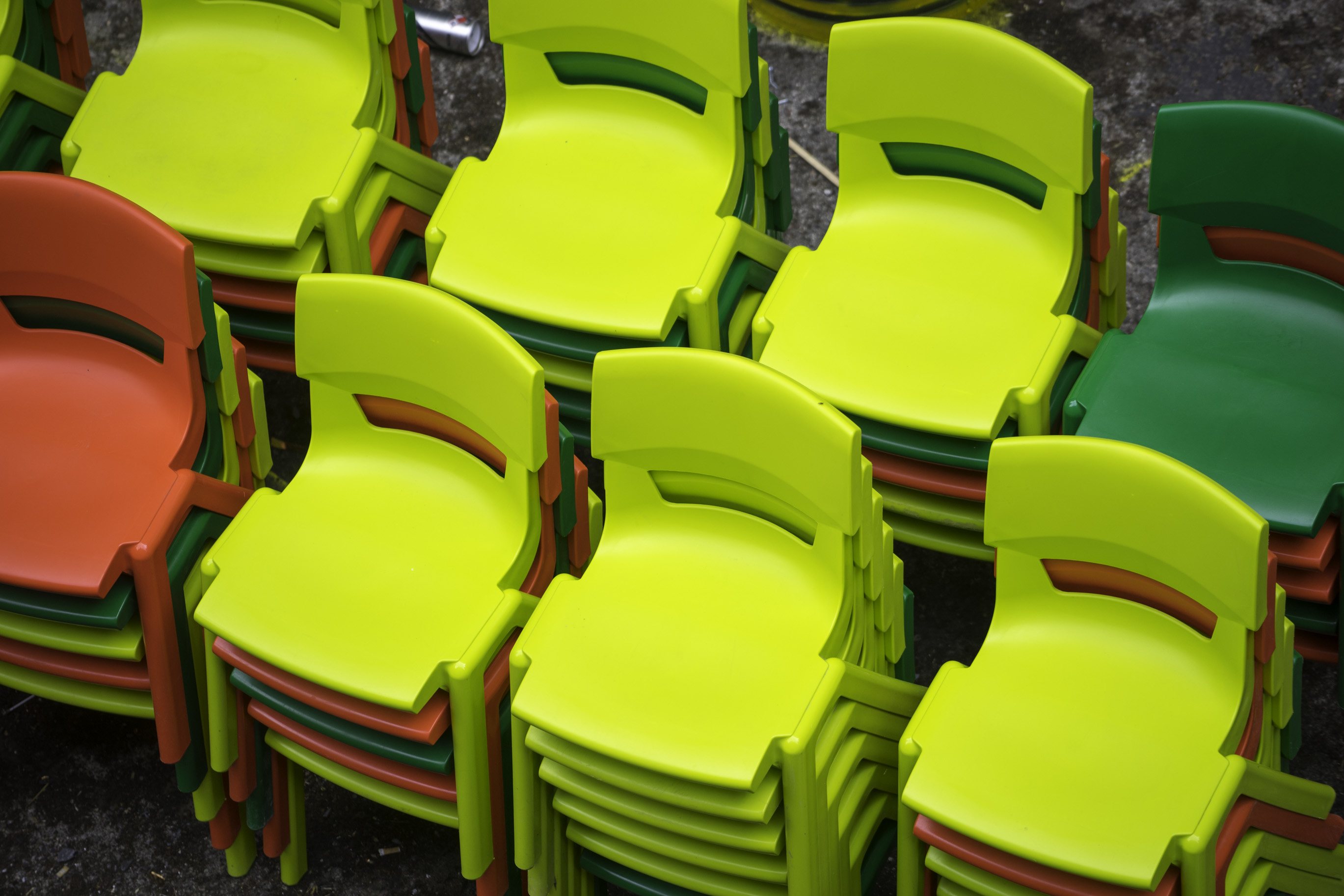
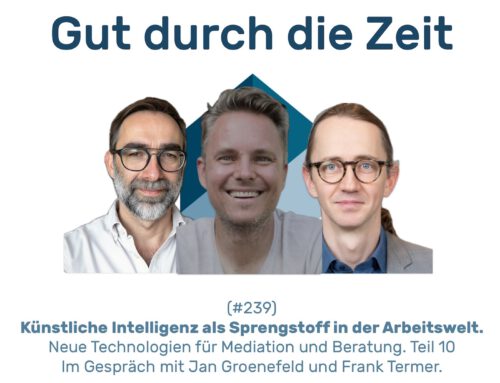
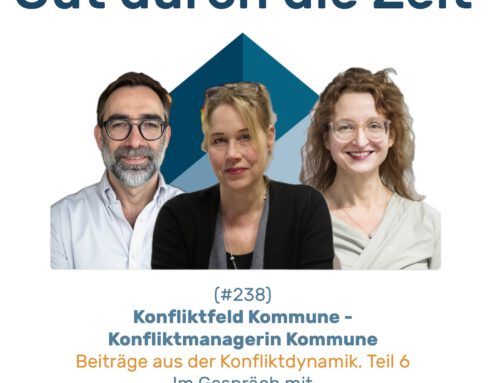
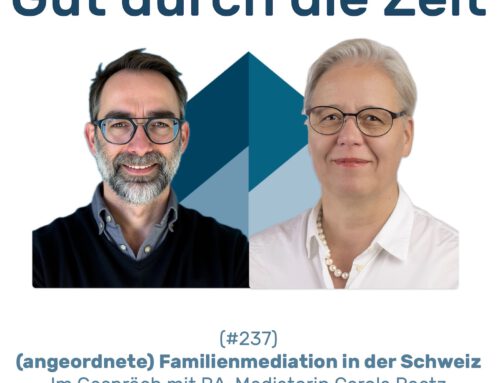
Leave A Comment